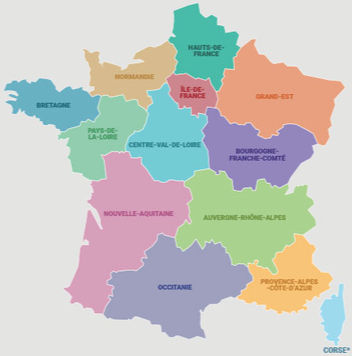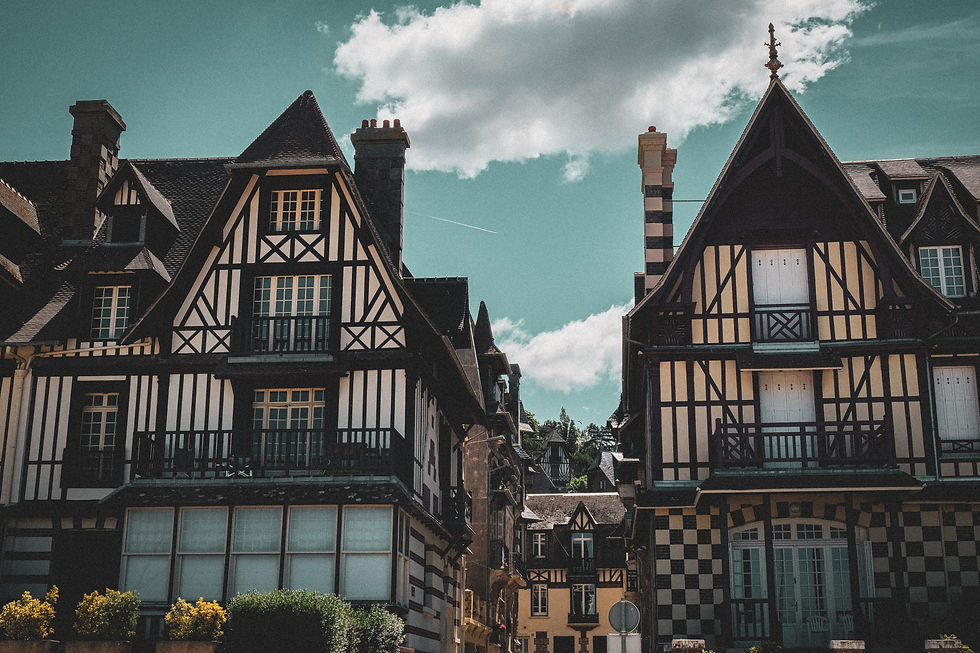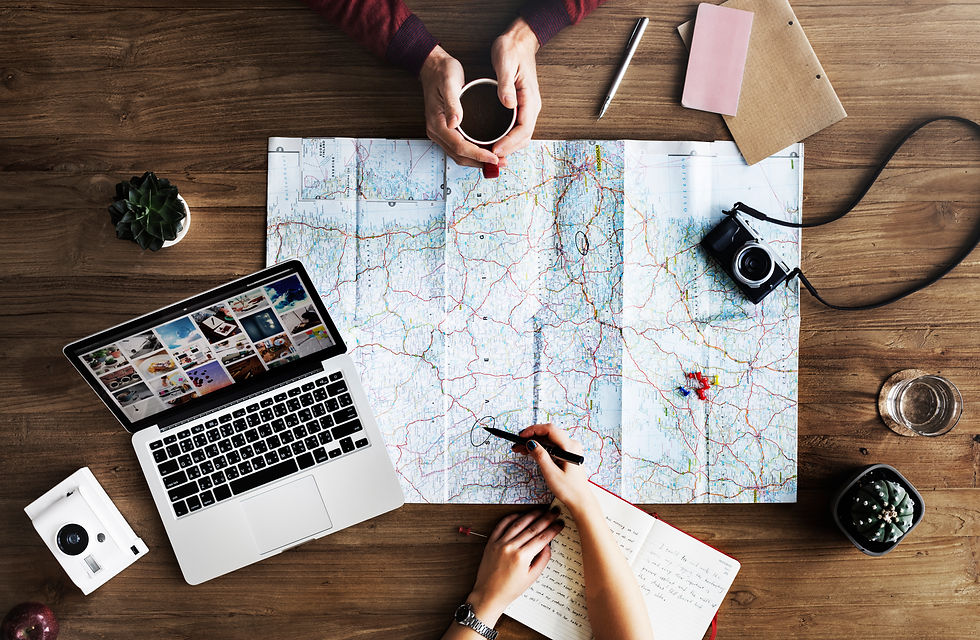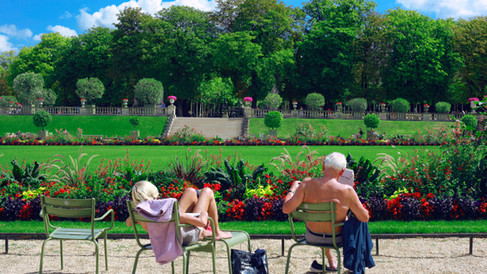Tips for First-Time Visitors to France: A Series: Part 1 - The best time to visit France
- Alissa Bratz
- Jul 31, 2025
- 5 min read
Updated: Aug 4, 2025

Part 1 of 5: When to visit France - Timing your perfect French adventure
Planning your first trip to France? The timing of your visit can make or break your experience. From bustling summer festivals to quiet winter charm, each season offers unique advantages and challenges. This comprehensive guide will help you choose the best time to visit France based on your priorities, budget, and travel style.
Understanding France's Climate and Seasons: When is the Best Time to Visit?
France enjoys a temperate climate with four distinct seasons, but the country's diverse geography means France weather by month varies significantly by region. The Mediterranean south basks in warm, dry summers and mild winters, while the northern regions experience cooler temperatures and more rainfall year-round. The mountainous areas of the Alps and Pyrenees have their own alpine climate patterns.
Spring in France (March-May) brings blooming flowers, mild temperatures, and fewer crowds. This shoulder season offers excellent value for money and comfortable weather for walking and sightseeing. However, spring weather can be unpredictable, with occasional rain showers and temperature fluctuations. | Summer in France (June-August) is peak tourist season for good reason. Long daylight hours, warm weather, and vibrant outdoor culture make this an ideal time for first-time visitors. However, expect higher prices, crowded attractions, and booking challenges for popular destinations. |
Fall in France (September-November) rivals spring as one of the best months to travel to France. September and October offer warm days, cool evenings, and stunning autumn foliage. Tourist crowds thin out after Labor Day, but many attractions maintain extended hours through September. | Winter in France (December-February) provides a completely different French experience. Christmas markets, cozy cafés, and snow-capped landscapes create magical memories. While some tourist attractions have reduced hours or close entirely, winter offers the most authentic glimpse into daily French life. |
Peak Season vs. Shoulder Season: What You Need to Know About France Travel Seasons
Understanding France's travel seasons is crucial for planning your perfect trip. Each season offers distinct advantages and challenges that can significantly impact your experience.

Peak Season in France (June-August, Christmas/New Year)
Pros: Longest daylight hours, warmest weather, all attractions open, vibrant festival season
Cons: Highest prices (accommodations can cost 50-100% more), massive crowds at popular sites, fully booked restaurants and hotels, hot temperatures in southern France

Shoulder Season in France (April-May, September-October)
Pros: Moderate temperatures, fewer crowds, better prices, blooming spring flowers or autumn colors
Cons: Unpredictable weather, some seasonal attractions may be closed, shorter daylight hours in fall

Low Season in France (November-March, excluding holidays)
Pros: Lowest prices, authentic local experience, cozy indoor activities, winter sports in mountain regions
Cons: Cold weather, shorter days, many tourist attractions have reduced hours, some restaurants close for winter break

Regional Considerations for Timing Your France Trip

When to visit Paris and Northern France
The best time to visit Paris is April-June and September-October. Summer can be crowded and occasionally hot, while winter days are short but offer beautiful holiday decorations and fewer tourists at major attractions.

When to visit the French Riviera and Mediterranean Coast
Peak season extends from May through September. Winter is mild but many coastal restaurants and attractions close. Spring and fall offer perfect weather with fewer crowds, making these some of the best months to travel to France's southern regions.

When to visit the French Alps
Two distinct seasons: winter (December-March) for skiing and summer (June-September) for hiking. Shoulder seasons can be challenging as many mountain facilities close during transition periods.

When to visit the Loire Valley and Central France
April through October offers the best weather for château visits and wine tasting. Many gardens are at their peak in late spring and early summer.

When to visit Bordeaux and Wine Regions
Harvest season (September-October) provides the most exciting wine experiences, but book well in advance. Spring through fall offers excellent weather for vineyard visits.
Budget Considerations by Season: When to Find the Best France Travel Deals
Your travel dates significantly impact your France vacation budget. Peak season accommodation prices can double compared to low season rates. Here's what to expect when planning when to visit France based on your budget:
High Season Pricing (June-August):
Paris hotels: €150-400+ per night for mid-range options
Regional accommodations: €100-250+ per night
Rental cars: Premium pricing with limited availability
Flights: Highest international airfare rates
Shoulder Season Pricing (April-May, September-October):
Paris hotels: €100-250 per night for mid-range options
Regional accommodations: €70-180 per night
Better car rental deals and availability
Moderate flight prices
Low Season Pricing (November-March, excluding holidays):
Paris hotels: €80-200 per night for mid-range options
Regional accommodations: €50-120 per night
Best car rental and flight deals
Many restaurants offer prix fixe winter menus

Special Events and Festivals Calendar
Spring Events:
| Summer Festivals:
|
Fall Highlights:
| Winter Magic:
|


Making Your Decision: Questions to Ask When Planning Your France Trip
What's your priority?
Weather, crowds, budget, or specific experiences?
How flexible are your travel dates?
Can you avoid peak season if budget is a concern?
What activities interest you most?
Outdoor sightseeing, museums, food experiences, or cultural events?
How do you handle crowds?
Some travelers love the energy of peak season, others prefer quieter experiences.
Note that crowds can also vary by region / location. An experienced travel advisor who specializes in travel to France can guide you.
Insider Tips for Visiting France in Any Season
Book accommodations at least 2-3 months in advance for peak season, 1-2 months for shoulder season
Pack layers regardless of season - France weather by month can be unpredictable
Many museums are closed on Mondays or Tuesdays - plan accordingly
French vacation periods (August, school holidays) can affect business hours and availability
Consider travel insurance for weather-related disruptions, especially in winter
A travel advisor specialized in France can help you navigate these details.

The Verdict: Best Times for First-Time France Visitors
For the perfect balance of good weather, manageable crowds, and reasonable prices, plan your first French adventure for late April through May or September through early October. These periods represent the best time to visit France for most travelers.
If you must travel in summer, focus on less touristy regions or plan city visits for early morning and evening when temperatures are cooler and crowds lighter. Winter travelers should embrace the cozy indoor culture and plan itineraries around shorter daylight hours.
Remember, there's no truly "bad" time to visit France - each season offers its own unique charm and experiences. The key is setting appropriate expectations and planning accordingly for the France travel seasons you choose.
Ready to Plan Your Perfect French Adventure?
Now that you know the best times to visit France, it's time to turn your travel dreams into reality. Whether you choose shoulder season's perfect balance or embrace peak season's vibrant energy, your French adventure awaits.
Ready to book your trip?
Work with a France specialist! Connect with me for personalized France travel planning, or subscribe for exclusive travel deals and insider tips.
Your perfect French getaway is just one click away.












Comments